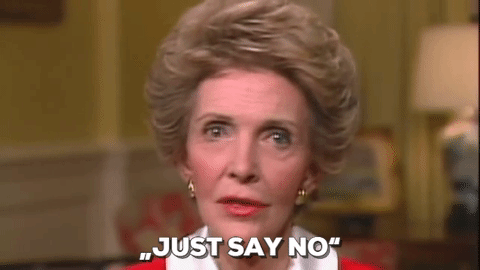-
Posts
21,816 -
Joined
-
Last visited
-
Days Won
162
Content Type
Profiles
Forums
Events
Blogs
Store
Articles
Everything posted by chasfh
-
I would prefer year-round DST to year-round standard time. I don't want the sun to set as early as 7:30PM on the first day of summer, and I definitely don't like it setting at 4:23Pm on December 21.
-
"Most" and "some" are not mutually exclusive. That's just my read on what I am reading here.
-
I'm not sure I completely agree. There are players remaining in this free agent class I think would be great fits for the Tigers, specifically, Christian Walker and Andrew Heaney. But I also think we might be into a good trade of prospect(s) for a major-league-ready cost-controlled player. Otherwise, I'm not sure what specifically you'd want to see that would be a perfect fit for the Tigers as they currently stand in their development and competitive cycles. FWIW, I also think we have a non-zero chance to sign Sasaki, for reasons, although I certainly wouldn't count on that.
-
As far as Tiger fans are concerned, I think the wild card question for our future is what kind of spender this Ilitch will be. Seems like most posters here believe Baby Doc will turn the team into the Pirates or Rockies, if we’re unlucky, or into the Rays, if we’re lucky. Meaning, whether we win or lose on the field, we still lose our Skubals at free agent time and, who knows, maybe our Greenes, too. Personally, I do not accept at face value that’s what he’s is going to do. He may not throw money around practically indiscriminately the way Papa Doc did—which I don’t think would be a good thing, anyway—but he has has already shown that, if he’s been convinced we’re in a position to win, he will spend the money. Exhibit A: Javy Baez. The Pirates or Rockies or White Sox owners would never have done that, were they in our position at the time. I agree with people who say they don’t think Harris would have come here if he knew we’d become the Rays and lose all our homegrown players at crunch time, so if we win at all, we’ll have to do so on a shoestring. Others might think he would take one of only 30 available job no matter where it is, but I think Harris was smart enough and career-focused enough to vet the situation well before accepting the job here. Bottom line, I will choose to believe the Tigers will spend when it’s time, until they prove to me they won’t. It’s simply not time to push in all those chips just yet. Too many other holes he inherited that we still have to address. But I do think it will happen.
-
Good answer, thanks. The luxury tax was intended to act soft salary cap and that’s exactly what it is: a cap on cheap teams that allow it to be, or small market teams that are forced into it; and nothing to a team that doesn’t give a **** about what they spend on players. So, to your point, if you want to significantly level the playing field, they’d have to come up with something harder. The … ahem … $64 question is what would the cap have to be in order to be effective. If they make it too high, obviously, the big market teams would still outspend the majority of teams that would voluntarily keep themselves well under it anyway. It’s true that a few teams on the margins today might join that elite group under a high-cap scenario. But it would still be an elite group, and it would still be a clear minority of teams. If they make the cap too low, then to free agents, it becomes less about who pays you more, because teams essentially are on even footing, and more about lifestyle choice, such as where your family lives, or where your family want to move to America to live, or where the media you want to highlight your personal brand are, or basically, who happens to be winning right now. Either way, I think most fans would probably believe the Tigers would lose under either scenario, because in a too-high-cap scenario the Tigers would presumably still not keep up with major market teams—because Ilitch, I guess—and in a too-low-cap scenario, free agents would not choose to come to Detroit as a lifestyle choice, basically same as today. So, short of bringing back the reserve clause, I’m not sure how they can essentially “force” players to stay in or choose Detroit as a place to play ball and live six or so months a year, even in a salary cap situation.
-
This is why people moving to Canada to avoid Trump is a fool's tactic.
-
Yes, he has more than a clue about what will rile up his army.
-
I think there's a really good chance Jobe comes north, unless he's making no progress this winter and he continues to make none this spring, which would be inconsistent with everything we've learned about the Harris regime.
-
What would be the positive effect of a salary cap, in your estimation?
-
You know, because he was worth way, way, WAY more than $760 million.
-
I’ve seen a rat or two down near the tracks in the Chicago subway, but never on the platform or on a train.
-
Are we talking about Richie Cunningham here?
-
Sounds like you think both the Tigers are done getting starting pitcher and Jackson Jobe won’t make it.
-
Good post. Agree on many points. Now find someone you think is a good bet to throw big money and long years at who will actually come here.
-
Fair point.
-
Is that what it is? That's pretty abstruse. If we're looking for some real outrage about rape—yeah, that's right, I put the "a" in it, call a cop if you don't like it—it's worth reminding people that there is sworn testimony on the record that Trump raped a 13-year-old girl. https://cdn.factcheck.org/UploadedFiles/Johnson_TrumpEpstein_Lawsuit.pdf
-
Speaking of which: when do we hear what cabinet post Kyle Rittenhouse is getting?
-
That will work only as long as the consumer is willing to pay it.
-
So, Alex Cobb: throws fast but doesn't strike guys out; doesn't walk guys and gets a lot of worm-burners. Gets hit hard but it's into the ground, so not many barrels. Harris has a type—and he signed him in San Francisco. I assume he's got something Fetter can work with.
-
-
Washington developed this version of Soto. How'd that work out for them in the long run?
-
That's because Scherzer was lippy.
-
I don't know that Skubal is necessarily gone, but I do know with the Harris front office, Tarik's not getting a stupid contract. And by that, I don't mean an expensive contract. I mean a Miggy-at-the-end-type contract.
-
Maybe Assad can get the Taliban discount special when he comes in.
-
By the way: "r*ping"? How much more woke can someone who unironically writes this be?





